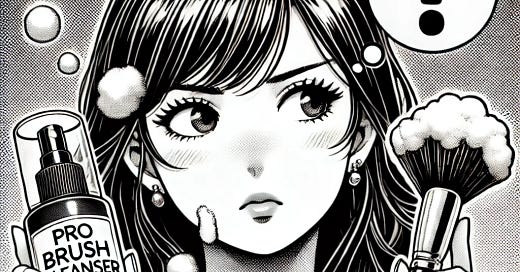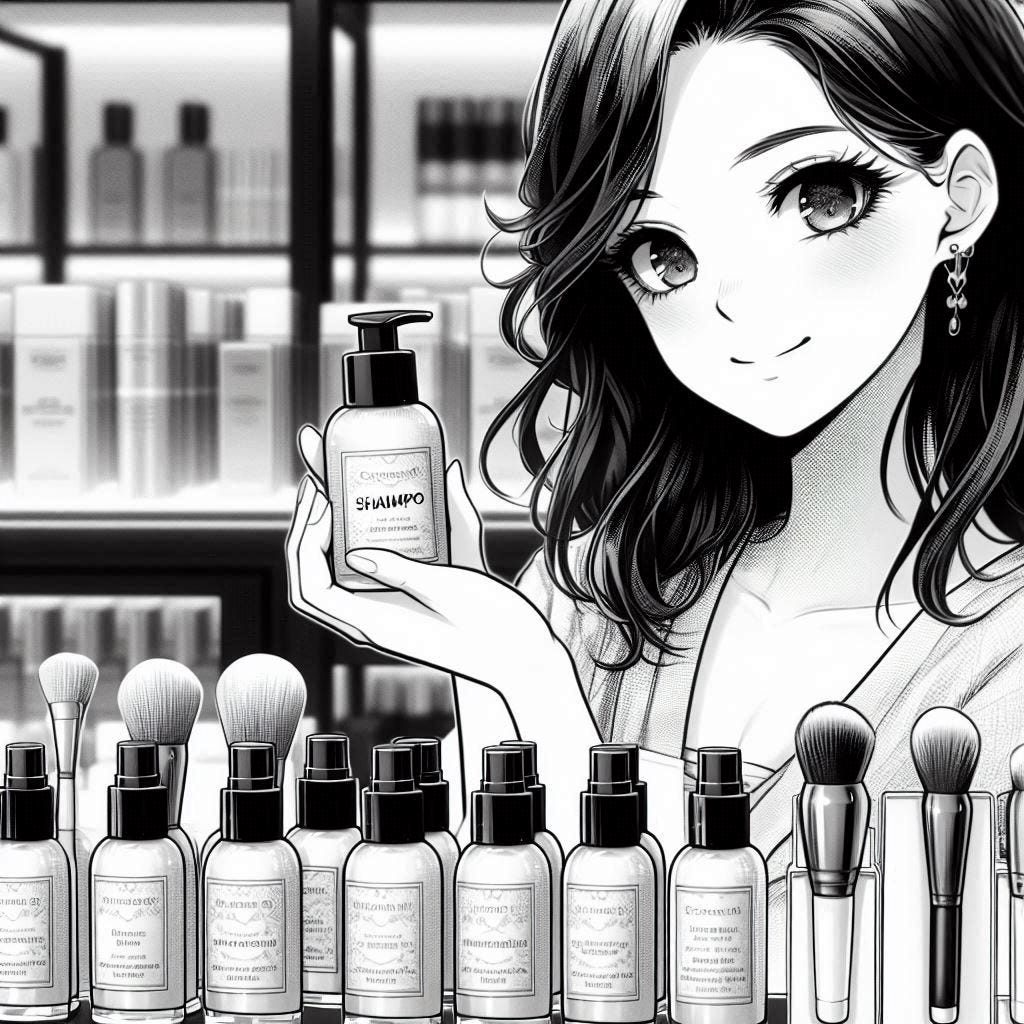(Apologies to my male readers—you might find this one a bit irrelevant. But if your female partner uses makeup brushes, this might earn you some serious brownie points.)
I’m not a neat freak, but I am serious about hygiene, especially when it comes to things that touch my face daily—like makeup brushes.
Lately, there’s been an explosion of commercial brush cleaners. They’re everywhere on social media, promising pro-level cleanliness. But here’s the kicker: they cost 10x more than my old-school method— shampoo. So I decided to do a little teardown.
What Problem Is the Product Really Solving?
Yes, brush cleansers clean makeup brushes. But so does shampoo. So why are people willing to pay a premium? The real value lies elsewhere:
It makes you actually clean your brushes. Many people never do. But once they buy a cleanser, they feel obligated to use it—“I paid for this, so I should clean my brushes.”
Perceived superiority. These cleansers claim to be faster, more effective, and more hygienic than DIY solutions. Many of them are indeed more effective, just it doesn’t mean that shampoo is not effective 🙃.
It looks professional. Makeup artists clean their brushes religiously (because they use them on different people). Using a special cleanser makes you feel like you’re leveling up your makeup game.Spoiler: Most makeup artists I know don’t use these commercial cleaners—at least not the ones from high-street brands.
Who Actually Needs a Commercial Brush Cleanser?
While these products are useful, I believe they’re only essential for a small group:
People who need a no-rinse solution.
Example: Makeup artists working on-location or people who want to clean brushes right before applying makeup.
People who don’t have five minutes per day or 15 minutes per week to wash their brushes.
Example: Extremely busy people (but ones who somehow have time for a full makeup routine).
People who don’t know there’s a cheaper alternative.
🤷🏻♀️
I know what you’re thinking—what about:
People who use a lot of silicone- and oil-based makeup? These formulas are tougher to remove, and regular soap might not cut it.
People who invest in natural hair brushes? High-end brushes (which cost 10x more than synthetic ones) supposedly require professional cleansers to extend their lifespan.
Honestly? A stronger shampoo works just as well. If it can remove hair grease, gel, and mousse, it can handle makeup residue. Especially for natural hair brushes—you actually don’t want alcohol-heavy commercial cleansers, as they can dry out the bristles over time.
Lessons from the Brush Cleanser Market
Despite all this, commercial cleansers keep gaining popularity. Why? Because they’re doing a few things really well—things that other products (even outside of beauty) can learn from.
1. Raising Awareness (The Carrot & Stick Approach)
Until recently, most people didn’t think about cleaning their brushes. Brands changed that by pushing both rewards and fears:
🥕 The Carrot: Clean brushes = better makeup application and longer brush lifespan.
🔨 The Stick: Brands leverage hygiene theater (emphasizing microbiological safety) to justify premium pricing.
2. Strong Value Proposition (Marketing Psychology 101)
Fear-Based Selling: Influencers frame brush cleaning as essential for clear skin, tapping into consumers’ fear of breakouts.
Luxury Positioning: Sleek packaging, “professional-grade” branding, and high price points make the product feel necessary—even if the ingredients are similar to cheap alternatives.
3. Not Easy to Use (That’s a Feature, Not a Bug)
Surprisingly, most commercial cleansers aren’t marketed as easy-to-use (except for no-rinse sprays). Why? My guess:
Brands tested this and found that people who care enough to clean their brushes don’t mind a multi-step process.
In fact, the more complex it feels, the more users believe it’s working.
The Paradox
So, if shampoo is cheaper (and arguably better), why are commercial brush cleansers thriving?
Because they’ve nailed product positioning. They don’t just sell clean brushes—they sell the idea of cleanliness, professionalism, and skincare superiority.
And that’s why people buy.
💡 Your Turn: Do you use a brush cleanser or a DIY method? What’s your take on “hygiene theater” in beauty marketing? Let’s discuss!





